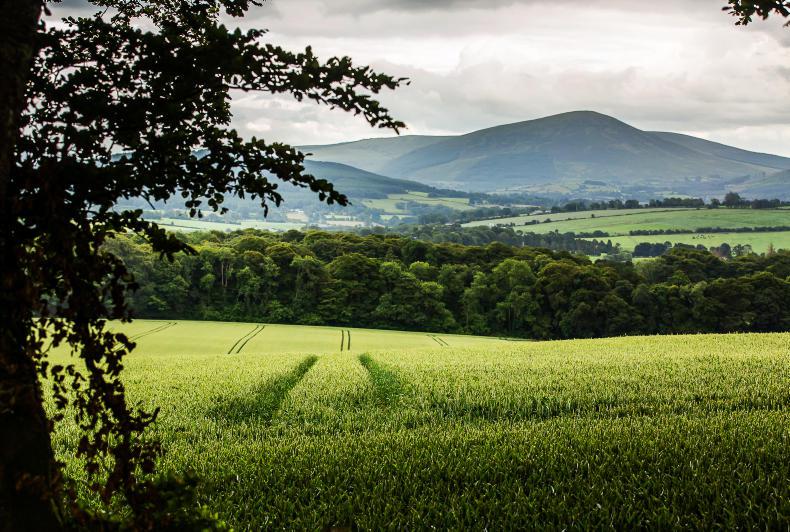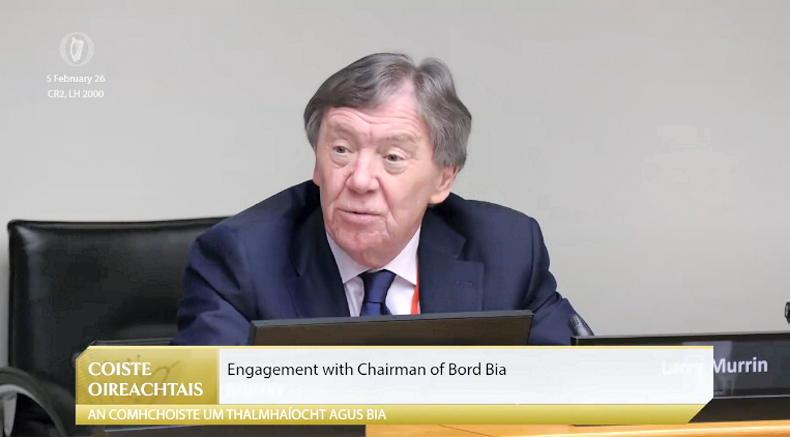From next year, legally-binding carbon budgets will be assigned to the agriculture sector under the Government’s Climate Action Bill, due to be published this week.
The bill will enshrine a 2050 emissions reduction target into law.
Agriculture will have its own carbon budget along with other sectors, with the Government setting a decarbonisation target range for each sector.
For the next decade and a half, there will be three carbon budgets from 2021 to 2025, from 2026 to 2030 and from 2031 to 2035.
It is not known yet what the emissions targets under farming will be, but Teagasc's Marginal Abatement Cost Curve (MACC) is expected to be the main tool to base the agriculture carbon budget on.
Teagasc analysis shows that curbing ammonia emissions from the sector can be done by switching to protected urea fertiliser and low-emission slurry spreading (LESS) technologies, such as trailing shoes and dribble bars.
Approval
The Dáil and Seanad will need to approve carbon budgets under the law.
Minister for Agriculture Charlie McConalogue will be accountable for delivering the climate actions in the farming sector, reporting on the delivery of these actions and whether they are achieved.
As revealed last week by the Irish Farmers Journal biogenic methane, methane from livestock, is to be considered differently under the bill.
The bill will result in a ban on the sale of diesel and petrol cars by 2030 and legislation is to be introduced to stop the granting of NCTs on these cars from 2045.
Budget revisions
The Minister for Climate Action, Communication Networks and Transport Eamon Ryan may recommend that the Government revises a carbon budget in the event of:
A significant change in greenhouse gas emissions accounting for the relevant inventories has occurred.The State’s obligations under EU law or international agreements have been amended or revised.There is a requirement to act quickly in response to economic and environmental occurrences and circumstances.Any targets not met in a five-year budget period can be carried forward to the next budget and sectors which exceed their targets can carry that exceedance into the next period.
Climate Action Council
The new law will see the Climate Change Advisory Council be renamed as the Climate Action Council and it will recommend climate budgets and policies to the Government.
It will have a chair and will have up to 11 members. In terms of farming representation on the council, the director of Teagasc Gerry Boyle will be a member.
Each year the council will conduct an annual review of each sector’s emission reductions and their performance against the carbon budget.
Farmers need to be part of the process
Farmers need to be part of the process in reducing emissions, Paul O’Brien IFA environment chair told the Irish Farmers Journal.
“The MACC needs to be implemented as cheaply, effectively and efficiently as possible.
“If this is to really work we need all the Government departments and semi-states to get together to discuss and see how it will be implemented.
“More money in research would be no harm to give farmers proper findings on how much our hedgerows sequester for example. We know how much we emit but no one is able to tell us how much we sequester,” he said.
Read more
Methane from farming to get special status in law
Agriculture must get sufficient input into climate bill – IFA
The climate actions on the big MACC menu
From next year, legally-binding carbon budgets will be assigned to the agriculture sector under the Government’s Climate Action Bill, due to be published this week.
The bill will enshrine a 2050 emissions reduction target into law.
Agriculture will have its own carbon budget along with other sectors, with the Government setting a decarbonisation target range for each sector.
For the next decade and a half, there will be three carbon budgets from 2021 to 2025, from 2026 to 2030 and from 2031 to 2035.
It is not known yet what the emissions targets under farming will be, but Teagasc's Marginal Abatement Cost Curve (MACC) is expected to be the main tool to base the agriculture carbon budget on.
Teagasc analysis shows that curbing ammonia emissions from the sector can be done by switching to protected urea fertiliser and low-emission slurry spreading (LESS) technologies, such as trailing shoes and dribble bars.
Approval
The Dáil and Seanad will need to approve carbon budgets under the law.
Minister for Agriculture Charlie McConalogue will be accountable for delivering the climate actions in the farming sector, reporting on the delivery of these actions and whether they are achieved.
As revealed last week by the Irish Farmers Journal biogenic methane, methane from livestock, is to be considered differently under the bill.
The bill will result in a ban on the sale of diesel and petrol cars by 2030 and legislation is to be introduced to stop the granting of NCTs on these cars from 2045.
Budget revisions
The Minister for Climate Action, Communication Networks and Transport Eamon Ryan may recommend that the Government revises a carbon budget in the event of:
A significant change in greenhouse gas emissions accounting for the relevant inventories has occurred.The State’s obligations under EU law or international agreements have been amended or revised.There is a requirement to act quickly in response to economic and environmental occurrences and circumstances.Any targets not met in a five-year budget period can be carried forward to the next budget and sectors which exceed their targets can carry that exceedance into the next period.
Climate Action Council
The new law will see the Climate Change Advisory Council be renamed as the Climate Action Council and it will recommend climate budgets and policies to the Government.
It will have a chair and will have up to 11 members. In terms of farming representation on the council, the director of Teagasc Gerry Boyle will be a member.
Each year the council will conduct an annual review of each sector’s emission reductions and their performance against the carbon budget.
Farmers need to be part of the process
Farmers need to be part of the process in reducing emissions, Paul O’Brien IFA environment chair told the Irish Farmers Journal.
“The MACC needs to be implemented as cheaply, effectively and efficiently as possible.
“If this is to really work we need all the Government departments and semi-states to get together to discuss and see how it will be implemented.
“More money in research would be no harm to give farmers proper findings on how much our hedgerows sequester for example. We know how much we emit but no one is able to tell us how much we sequester,” he said.
Read more
Methane from farming to get special status in law
Agriculture must get sufficient input into climate bill – IFA
The climate actions on the big MACC menu










SHARING OPTIONS